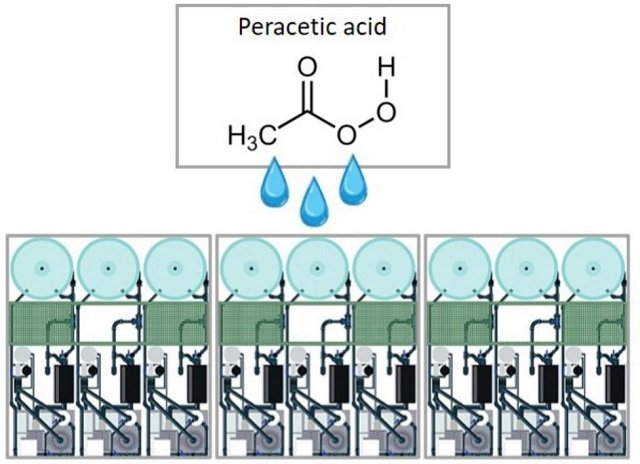Terrestrial ingredients in fish feed often affect the semipermeable barrier of the fish intestine, which is the first line of defense against the environment.
Soybean meal has been incorporated as a protein source in salmon feed due to its low cost, high availability, and suitable amino acid profile and protein content. However, the high content of antinutritional factors poses a serious challenge for fish.
The inclusion of immunostimulants, pre- and probiotics can enhance the health status of fish and potentially alleviate the negative consequences of terrestrial ingredients on the fish epithelium.
The use of functional food ingredients to improve the intestinal health of Atlantic salmon (Salmo salar) could allow for greater variation and increased inclusion of plant-based proteins in the feed.
Vegetable components with bioactive properties, such as fucoidans from macroalgae, have great potential as functional food ingredients.
Researchers from NTNU Norwegian University of Science and Technology, Val FoU, Queensland University of Technology, and University of Gothenburg challenged Atlantic salmon smolts (Salmo salar) with a 17.8% inclusion of HP48 soybean meal, a diet known to cause low-level intestinal inflammation.
They included Undaria pinnatifida fucoidan at 0, 1, or 3% to study its ability to alleviate low-level intestinal inflammation caused by soybean meal.
Macroalgae fucoidans
Fucoidans are polysaccharides derived from marine macroalgae that have received considerable attention in recent decades due to their anti-inflammatory, antitumor, anticoagulant, and immunomodulatory activities.
Various studies have highlighted the potential use of fucoidans as dietary supplements in the aquaculture industry, with promising effects on growth, disease resistance, and health parameters in several shrimp species.
Stay Always Informed
Join our communities to instantly receive the most important news, reports, and analysis from the aquaculture industry.
Although research on the beneficial effects of fucoidan in fish diets is relatively limited, fucoidan extracts from different species of macroalgae have shown increased utilization of soy protein isolates in red sea bream juveniles (Pagrus major) and improved intestinal health and growth in Nile tilapia (Oreochromis niloticus), barramundi (Lates calcarifer), and gibel carp (Carassius auratus gibelio).
Effect of fucoidan
Finding functional food ingredients that improve fish intestinal health can allow for a wide selection of raw materials that are more sustainable, economically viable, and readily available than those currently used in the industry.
Fucoidan has significant potential due to its high and robust bioactive properties.
“The addition of 3% fucoidan reduced the digestibility of dietary protein, but this did not result in significant differences in growth parameters,” the researchers reported.
“Despite some minor impurities such as 1.0% glucose and 0.41% mannitol, we can conclude that the fucoidan used in the present study represents commercially available standards. It is essential to evaluate the chemical structure of fucoidan, as evidence suggests a direct relationship between the chemical structure of fucoidan and its bioactive properties,” they noted.
Anti-inflammatory effect
According to the study results, supplementing with 1 to 3% U. pinnatifida fucoidan tended to significantly decrease paracellular permeability of 14C-mannitol in both tissue segments compared to the control, indicating improved intestinal integrity.
“An anti-inflammatory effect of fucoidan was observed in the posterior intestine with significant reductions in the width of the granular layer and height of the lamina propria in FUC1 and FUC3-fed fish compared to the control,” they reported.
Conclusion
The study results suggest that U. pinnatifida fucoidan may have a positive effect on both intestinal integrity and immunoregulation in Atlantic salmon (Salmo salar).
“In conclusion, U. pinnatifida fucoidan could serve as a functional food ingredient during low-level intestinal inflammation situations in Atlantic salmon, such as when marine feed resources are exchanged with plant-based ingredients or during acute and chronic stress situations,” the researchers concluded.
Contact
Malene Fosse Nordvi
View in Scopus
Department of Biology, NTNU Norwegian University of Science and Technology, Trondheim, Norway
Email: malene.f.nordvi@ntnu.no
Reference (open access)
Malene Fosse Nordvi, Signe Dille Løvmo, Ingeborg Hollekim Bringslid, Paul Whatmore, Henrik Sundh, Kjell Inge Reitan, Finn Lillelund Aachmann, Rolf Erik Olsen. 2023. Fucoidan from Undaria pinnatifida mitigates intestinal inflammation in Atlantic salmon (Salmo salar). Aquaculture, Volume 575, 2023, 739777, ISSN 0044-8486, https://doi.org/10.1016/j.aquaculture.2023.739777.
Editor at the digital magazine AquaHoy. He holds a degree in Aquaculture Biology from the National University of Santa (UNS) and a Master’s degree in Science and Innovation Management from the Polytechnic University of Valencia, with postgraduate diplomas in Business Innovation and Innovation Management. He possesses extensive experience in the aquaculture and fisheries sector, having led the Fisheries Innovation Unit of the National Program for Innovation in Fisheries and Aquaculture (PNIPA). He has served as a senior consultant in technology watch, an innovation project formulator and advisor, and a lecturer at UNS. He is a member of the Peruvian College of Biologists and was recognized by the World Aquaculture Society (WAS) in 2016 for his contribution to aquaculture.







